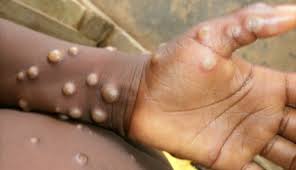The Africa Centres for Disease Control and Prevention (Africa CDC) has sounded the alarm by declaring pox, formerly known as monkeypox, a public health emergency in Africa.
The continent’s top health body is deeply concerned about the rapid spread of a new strain of the highly infectious disease, which is transmitting at an alarming rate.
This declaration underscores the urgent need for swift action to contain the outbreak and prevent further spread, as pox poses a significant threat to public health across Africa.”
Scientists from the Africa Centres for Disease Control and Prevention (Africa CDC) say they are alarmed by the speed at which a new strand of pox has been spreading.
Since the beginning of the year, more than 13,700 cases and 450 deaths have been recorded in the Democratic Republic of Congo.
The virus, which can cause lesions across the whole body, has spread to other African countries, including Burundi, the Central African Republic (CAR) Kenya and Rwanda.
The declaration of a public health emergency will help governments coordinate and potentially increase the flow of medical supplies and aid into affected areas.
Health chiefs outside Africa will also have legally binding resolutions to the risk of the outbreak spreading further.
Mpox spreads from animals to humans and between people through close contact with someone who is infected – including through sex, skin-to-skin contact and talking or breathing close to another person.
It can cause symptoms such as fever, muscle aches and lesions across the body. If left untreated, pox can be detox. There are two main strains of the virus known to exist.
The milder one caused the global outbreak in 2022 that affected Europe, Australia, the US and many other countries – and was mainly spread through sexual contact.
The second, more deadly strain, endemic in central Africa, is behind the recently discovered variant in DR Congo.
Three vaccines exist but only people at risk or who have been in close contact with an infected person are usually able to have it.


